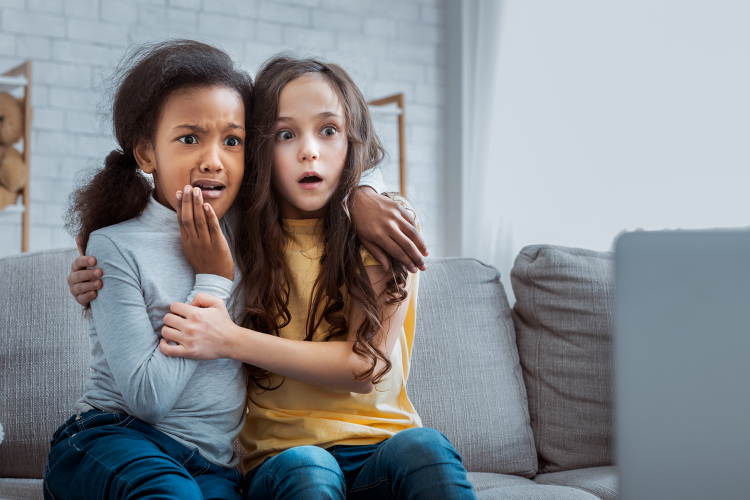Could vampire fiction be contributing to my daughter’s anxiety?
Could vampire fiction be contributing to my daughter’s anxiety? https://mediatrics.com/wp-content/themes/corpus/images/empty/thumbnail.jpg 150 150 Mediatrics Mediatrics https://mediatrics.com/wp-content/themes/corpus/images/empty/thumbnail.jpgQ: My daughter is in junior high, and I’m noticing signs of anxiety. She has become more needy of me, is more fearful, will no longer go upstairs alone, and just feels “randomly stressed.” She is a strong, organized student, has good friends, exercises, eats healthily, and (until recently) sleeps well. The only lifestyle red flag I see is that all year she has been reading very dark and intense books that include subjects like hooking up, angels, suicide, after-life, car accidents, and murder (The Vampire Diaries, for example). She starts a new one every 2-3 weeks. Could these books be contributing to her stress even though she likes them, or should I just accept this behavior as part of puberty?
Vexed About Vampires in Glencoe, IL
A: Dear Vexed,
First of all, compliments to you on being so sensitive to what’s going on with your daughter. What we know about fear from media research is that younger children tend to be more frightened by fantasy elements– ghosts, monsters, and witches — and older children tend to be more frightened by violence and injury that could potentially happen in real life. This is because as they grow, kids develop the ability to tell reality from fantasy. Your daughter is at an age where she is growing out of one stage and into the other.
The stories that are most appealing to pre-teens and teens, from Twilight to Harry Potter, are often about establishing independence, fearing and overcoming abandonment, and establishing new relationships. Life, death and the afterlife makes those themes stand out, and the books you describe put a great deal of focus there. Talking with your daughter about what she’s reading may open conversations about the issues she’s facing, and it can also allow you to help her understand how the stories do or do not relate to her own life.
Because these books center on issues that are so central for her, they may very well be related to her stress—but that’s not necessarily a bad thing. Reading about these themes in a fictional setting may be a relatively safe way for her to process them because:
- She can stop reading if and when she becomes too overwhelmed.
- She is limited by her imagination. Kids’ minds will only create images that are as scary as their minds are ready to process (a film, on the other hand, presents images she may not be ready for).
- She is choosing to spend her time reading, and that’s always beneficial.
That said, there is a difference between healthy (though difficult) processing and anxiety that interferes with the tasks of life, and the books could certainly contribute to either. How do you know which one you’re dealing with? By asking yourself whether anxiety is preventing her from doing things she needs to do (for example, if nightmares keep her up at night and she’s falling asleep in class). If it is, then you may want to seek a therapist to help her figure out what’s happening both in the books and in her life.
In any case, though, one of the best things you can do is be there to listen when she wants to talk about her stress, applaud her efforts to establish her own identity, and, most of all, encourage her love of reading, because that will serve her throughout her life.
Enjoy your media and use them wisely,
The Mediatrician®



